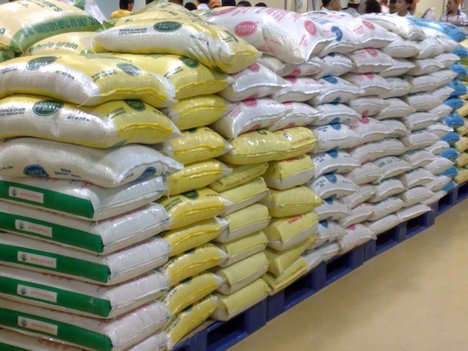Nigerians in the Federal Capital Territory are finding it difficult to locate the sales points for the N40,000 subsidized rice officially launched by the Federal Government last week.
On September 5, 2024, the Minister of Agriculture and Food Security, Senator Abubakar Kyari, inaugurated the sale of 30,000 metric tonnes of milled rice at a subsidized rate of N40,000 per 50kg bag. During the launch in Abuja, Kyari emphasized the initiative’s goal, driven by President Bola Tinubu’s commitment to ensuring that “Nigerians do not go to bed hungry.”
Kyari acknowledged the challenges contributing to rising food costs, including the impacts of the COVID-19 pandemic, the ongoing Russia-Ukraine conflict, climate change, and other local economic factors. “Recent events have made it difficult for Nigerians to afford food,” he noted.
He assured the public that the government has implemented measures to ensure transparency and a smooth distribution process for the subsidized rice. “I urge our citizens to cooperate with government agencies to make this initiative successful. Let’s work together to uphold the fundamental right to food for all Nigerians,” he stated, adding that the sales will follow a “one person, one bag” policy to ensure fair distribution.
Despite the excitement surrounding the launch, FCT residents have expressed frustration at their inability to find designated collection or payment points for the rice. Many report that no distribution centers have been established in their areas.
Mrs. Yunusa Eleojo, a resident of Kuje Area Council, shared her disappointment, revealing that she purchased a bag of rice from a wholesaler for N84,000—more than double the promised price. “I heard the government is selling rice for N40,000, but I don’t know where to buy it,” she said. “I had no choice but to pay N84,000 for a bag from a wholesaler who claimed it was the wholesale price.”
Another resident from Bwari Area Council, known as Mama Twins, echoed similar concerns: “We see the government advertising rice for N40,000 on television, but we don’t know where to buy it.”
She also expressed worries that middlemen might exploit the distribution process, making it even harder for people to access the subsidized rice. Salami Taiwo, another FCT resident, expressed skepticism about the initiative’s viability, stating, “When I first heard about the N40,000 rice, I knew it wouldn’t be realistic given how the government has treated us.”
Attempts to reach the Federal Ministry of Agriculture and Food Security for clarification on this issue were unsuccessful, with officials at the Public Affairs Department not responding to inquiries.
As residents await further information on where and how to access the subsidized rice, their frustration continues to mount. Many hope that distribution issues will be resolved quickly, ensuring that the rice reaches those who need it most.

